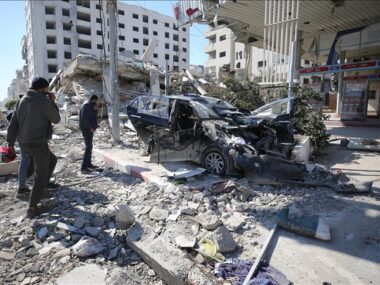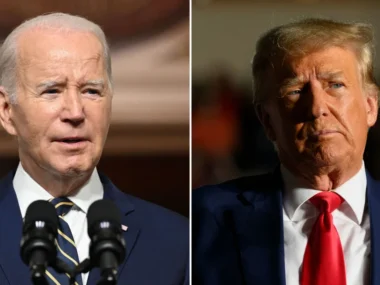Climate Change Crisis: Countries Unite for a Sustainable Future at COP28
As the world faces an unprecedented climate change crisis, countries have gathered at the United Nations Framework Convention on Climate Change (UNFCCC) 28th Conference of the Parties (COP28) to forge a united response. This pivotal summit, taking place in Dubai, United Arab Emirates, from December 2023, serves as a critical juncture in the global fight against climate change. With the glaring impacts of climate change—ranging from severe weather events to rising sea levels and food insecurity—countries cannot afford to engage in half-measures. COP28 stands as a beacon of hope for a sustainable future.
The Urgency of Action
The latest reports from the Intergovernmental Panel on Climate Change (IPCC) underline an unsettling reality: if global temperatures exceed 1.5 degrees Celsius above pre-industrial levels, the consequences could be catastrophic. Recent extreme weather events, including wildfires, hurricanes, and flooding, have reinforced this urgency, compelling nations to prioritize climate action as a matter of national security and global stability.
COP28 is particularly significant as it is coinciding with the mid-way point between the Paris Agreement’s goals and the 2030 deadline for achieving significant greenhouse gas reductions. Countries are expected to demonstrate more ambitious climate commitments and enhanced strategies to mitigate and adapt to climate change effects.
Key Themes and Goals
At COP28, participants will focus on several key themes aimed at fostering collaboration and developing viable solutions to the climate crisis:
-
Ambitious Nationally Determined Contributions (NDCs): Countries will be encouraged to present updated and more ambitious NDCs to align with the target of keeping global warming below 1.5 degrees Celsius. Discussions will revolve around accountability mechanisms to ensure nations meet their commitments.
-
Climate Finance: Developing nations, which bear the brunt of climate change despite contributing the least to its causes, will advocate for increased financial support. Wealthier nations must fulfill their pledge of mobilizing $100 billion annually to assist in emissions reduction and adaptation efforts. COP28 will address innovative financing mechanisms, including green bonds and investments in renewable energy.
-
Technological Innovation: Emphasis will also be placed on promoting clean technologies and innovations that can accelerate the transition to a decarbonized economy. Countries will share best practices in sustainable agriculture, renewable energy, and carbon capture technologies.
-
Addressing Loss and Damage: The phenomenon of loss and damage—referring to the irreversible impacts of climate change—must be part of the discourse. Developed nations are urged to take responsibility and provide resources to help vulnerable countries cope with climate-related disasters and their aftermath.
- Engaging Stakeholders: COP28 will seek to engage various stakeholders, including youth leaders, indigenous communities, businesses, and civil society, in the dialogue. Their involvement will ensure that the climate agenda becomes more inclusive, capturing diverse viewpoints and solutions.
Global Impact and Future Directions
The outcomes of COP28 will resonate globally, impacting policies and practices in various sectors, including energy, transportation, agriculture, and urban planning. Historically, COP summits have catalyzed significant international agreements, and COP28 promises to continue this legacy by establishing a roadmap for a just transition to a sustainable world.
As the analog clock ticks toward the Paris Agreement’s timeline, the unity demonstrated by nations at COP28 may dictate the pace at which the world addresses climate change. The commitment to global cooperation is vital, as no single nation can tackle this issue in isolation. Climate change knows no borders, and consequently, it necessitates a collective approach that prioritizes equity, science, and sustainability.
Conclusion
COP28 represents not just a conference; it is a moment of reckoning and collective resolve. As nations convene in Dubai, the coming weeks will be critical in shaping the world’s climate policy landscape and charting a sustainable course for generations to come. The narrative of climate change is one of urgency, resilience, and interdependence. With bold commitments and collaborative action emerging from COP28, there is hope that a sustainable future is within reach—if we grasp it together.











